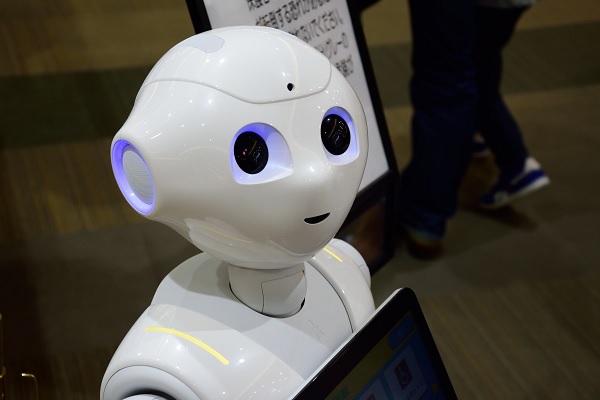
–>
July 17, 2022
This vast multi-faceted subject will bewilder almost everyone for years to come.
‘); googletag.cmd.push(function () { googletag.display(‘div-gpt-ad-1609268089992-0’); }); }
We know this because Elon Musk and Mark Zuckerberg, billionaire brainiacs, disagree diametrically. So how can the rest of us find solid ground?
Musk casually asserts, “A.I. is a fundamental threat to the existence of human civilization.” Zuckerberg answers with some petulance, “A.I. is going to make our lives better. … Doomsday scenarios are pretty irresponsible.”
People have been lecturing about climate change for many years, claiming this or that will happen in 25 years, 50 years, or 100 years. What is proven? A.I. is going to happen faster, and we will see it happen. Musk urges major countries to restrict research on A.I. before it’s too late. Not likely. If you want something to keep you up at night, A.I. may be the thinking person’s choice.
‘); googletag.cmd.push(function () { googletag.display(‘div-gpt-ad-1609270365559-0’); }); }
All the hardware is moving faster, according to Moore’s Law. But that isn’t where the action is. Algorithms are the rules or instructions that tell machines what to do. Math geniuses are cleverly devising more ingenious algorithms. They used to give the rules of a game to the machine. No more. Now they tell the computer to study a thousand great games and figure out what it should do to win its next game. Surprising things happen. Moves scorned by experts turn out to be genius!
The Chinese, ever chauvinistic, always assumed that a Chinese man would be the Go champion of the world forever. Well, well, you can imagine the shock to the system when the current star lost to the machine. Condescending toward A.I. the week before, the Chinese military were suddenly big believers. And what is Musk’s takeaway from that? “Competition for A.I. supremacy will lead to World War III.”
The old doomsday scenarios, nuclear or climate or whatever, were always more circumscribed. Life could be wiped out in one part of the planet, but other parts would not notice. A.I. is already part of everything and proliferating. For example, economists have been fretting for years about what jobs will be left for ordinary humans when robots can do all almost every job better. Massive job disruption seems guaranteed.
People who track public schools often conclude that our classrooms are doing a lousy job. Meanwhile, poorly educated Americans are encouraged to enjoy sports betting, recreational drug use, and a life on welfare. The geniuses at the top of our society seem determined to turn humans into second-class citizens unlikely to deal constructively with so many first-class machines. Bad timing or bad intentions?
Now, for a completely different kind of perplexity, let’s hang around the office when the first robot workers have been welcomed into the workforce. Robots should probably be marked with black and white stripes to avoid problems, but research shows, for example, that patients prefer robot nurses that look like real nurses.
There is now a whole separate industry in robotics that we might call hair and make-up. Extreme realism is doable. Robot eyes can dilate, lips can purse, feelings can crawl across a woman’s face. We have probably already crossed the threshold where an uninformed person chatted with a robot for half-hour and didn’t realize it. Creepy.
‘); googletag.cmd.push(function () { googletag.display(‘div-gpt-ad-1609268078422-0’); }); } if (publir_show_ads) { document.write(“
There is a growing industry devoted to sexy A.I. Will they be second spouses? Or how about a live-in mistress? Will wives accept that? Will there be office romance and jealousy? Some people will probably run screaming in the direction of normalcy, but maybe other people will say, Let robots run free; it’s their right. In general, robot shock will be a common experience.
Super-machines and faux humans will likely be welcome additions throughout the society but at the same time a source of unpredictable and perhaps uncontrollable menaces. Imagine people who never have a hair out of place, who never say the wrong thing. You can make them as handsome or pretty as you wish, and as brainy. Can a human love a robot or vice versa? What laws are relevant? Robots can be made to look just like the people you now work beside. How will you feel when you realize, OMG, this person is a robot? That’s the robot singularity we’re moving toward, the robot horizon, when robots perfectly mimic the appearance and manners of humans. But will they ever truly be human?
Some awesome potentialities loom. The big quandary nestles inside this question: dare we give a robot autonomy? To be really effective in many jobs (soldier, law enforcement, manager), a robot needs to think for itself. But that’s exactly when all bets are off. There will always be the risk that the A.I. will find new answers and new horizons, and then perhaps refuse to come home.
Here is a completely different kind of problem. The human race is accustomed to being the alpha species, the big dog on this planet. We can look down on everything else and feel good about this juxtaposition. What happens when humans start to feel inferior?
About 55 years ago, in England, Eric Clapton watched in pained amazement as Jimi Hendrix shifted the guitar from one side of his body to the other and played it backwards, so to speak. Clapton, a certified guitar god, had never imagined that a human could do this. He suffered a crisis of doubt and almost gave up his career.
It’s relevant to recall that the American government has almost always concealed UFO sightings and findings. There was a suspicion, apparently, that ordinary people would not be able to stand exposure to so much superiority. There may be a real crisis when many humans are crushed by the realization that they are not the center of existence. What would be the point of living if we can’t even keep up with our next-gen servants? One bad-case scenario is that millions of humans will not enjoy life as they once did. Maybe the epitaph for the human race will be “They lost confidence in themselves.”
Who will be most threatened by robots? What type of person will be most eager to work with them, or inclined to fear and despise them? We may find a deep instinctual response in many situations with robots. Perhaps there will be an atavism as primitive as cats and dogs not liking each other.
Here is a final touchy point. The robot at its highest level will always be a fake, an actor. In other senses, it will be an alien among us, as surely as if it had been dropped off by a UFO. It will have no reason for favoring one attitude or another about anything. A robot could trigger the end of the world and not be sentimental about it.
Bruce Deitrick Price is a novelist, poet, artist, and education reformer. He has tracked A.I. for 30 years. Frankie, his new novel, is about a harmless robot who unintentionally turns the state of New Jersey upside-down. (Visit Frankie.zone.)

Image via Pxhere.
<!– if(page_width_onload <= 479) { document.write("
“); googletag.cmd.push(function() { googletag.display(‘div-gpt-ad-1345489840937-4’); }); } –> If you experience technical problems, please write to [email protected]
FOLLOW US ON
<!–
–>
<!– _qoptions={ qacct:”p-9bKF-NgTuSFM6″ }; ![]() –> <!—-> <!– var addthis_share = { email_template: “new_template” } –>
–> <!—-> <!– var addthis_share = { email_template: “new_template” } –>







